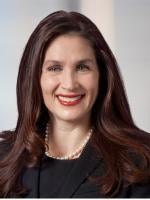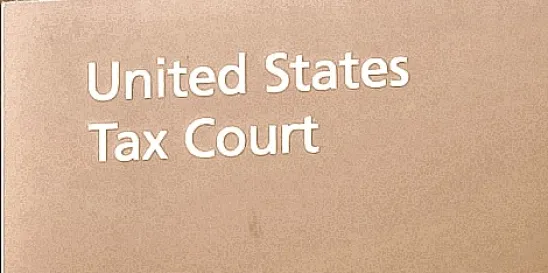On November 15, 2023, the U.S. Tax Court held in YA Global Investments v. Commissioner[1] that a non-U.S. private equity fund (YA Global) with a U.S. asset manager that bought equity and convertible debt of U.S. portfolio companies was engaged in the conduct of a trade or business within the United States for U.S. federal income tax purposes, all of its income was “effectively connected” to that trade or business, and the fund (which was treated as a partnership for U.S. federal income tax purposes) was liable for penalties and interest for failing to withhold with respect to its non-U.S. corporate feeder fund partner.
- YA Global made loans and convertible loans and entered into standby equity distribution agreements (“SEDAs”) to purchase equity. It entered into hundreds of these transactions over the years in question. YA Global described itself as providing underwriting services, its manager received structuring fees and banker’s fees, and YA Global itself received commitment fees. The Tax Court held that YA Global provided services, and therefore was engaged in a trade or business in the United States for tax purposes.
- The case provides a reminder that labels matter and taxpayers should not assume that they will be able to assert a substance argument which conflicts with their own form. For example, the outcome of the case may have been different had YA Global received all of the fee income that was paid to its manager and if the upfront payments had not been labeled as “fees”. It certainly would have been easier to argue such income was earned for the provision of capital rather than for services if the income actually had been earned by the entity providing the capital and if the income was not called “fees”. Where it is not possible to adopt a corporate form that is consistent with the intended tax treatment, it also can be helpful for the parties to agree on the tax treatment of the payment and explicitly state that agreed intention in the transaction documents.
- The IRS argued that YA Global’s manager should be treated as YA Global’s agent merely because it was acting on behalf of YA Global. However, the court declined to adopt such a broad standard, instead holding that it is the power to provide interim instructions that made the manager YA Global’s agent. The court found that YA Global had that power based on a provision in its governing documents requiring it to promptly advise its manager of any relevant investment restrictions. It is doubtful that future courts will follow this very narrow view of agency, and, therefore, funds should not rely on it. However, funds whose managers have full discretion to invest on their behalf will have a second defense against an assertion that they are engaged in a U.S. trade or business.
- YA Global held many of its securities for 12-24 months, told its investors that it sought “capital appreciation”, and had returns similar to venture capital funds (some investments doubled in value and a large number experienced losses). Despite this, the court held that YA Global was a “dealer in securities” for purposes of section 475, and that its portfolio companies were “customers”. Again, YA Global’s characterization of its own business to these portfolio companies as being a low-risk spread business likely worked against it.
I. Background
YA Global was a Cayman Islands partnership. Yorkville Advisors (“Yorkville” or the “manager”) was YA Global’s sole general partner and investment manager. Yorkville’s employees worked from within the United States. Yorkville received a 2% management fee and a 20% incentive fee based on YA Global’s profits. However, Yorkville was also entitled to retain any fees it received directly from the portfolio companies to the extent of its overhead. Any excess fees received by Yorkville were offset against management fees owed to Yorkville, or paid to YA Global.
YA Global purchased convertible debt and equity from thinly publicly-traded U.S. corporate portfolio companies.[2] YA Global’s equity purchases were pursuant to SEDAs, which required the fund to purchase up to a specified dollar value of a portfolio company’s stock over a fixed period (typically two years) at a discounted price (e.g., 97%) of the weighted average of the stock’s trading price. The SEDAs and convertible debentures generally required the portfolio company to pay “structuring fees” and “banker’s fees” to Yorkville and “commitment fees” to YA Global. The SEDAs were structured to provide substantial fee income to be paid to Yorkville, which it was entitled to retain (up to its overhead costs) under the agreement with YA Global.
An executive of one of the portfolio companies testified that his company did not receive any services and that the fees were merely a cost of issuing shares. However, in pitchbooks to the portfolio companies, YA Global described itself as an underwriter and, on its website, it described itself as providing portfolio companies with a service.
YA Global held many of its investments for 12-24 months before selling the shares into the public markets or converting the debt into shares and selling those shares into the public markets. YA Global told its investors that it sought “capital appreciation”. An expert testified that YA Global’s returns were comparable to a venture capital firm (i.e., that YA Global took market risk) and had a few big winners and lots of losers. However, YA Global told portfolio companies that it was functioning as an underwriter, providing portfolio companies with a service, and Yorkville received structuring fees and banker’s fees.
II. The Tax Court’s Opinion
Agency
As a threshold matter, the court found that Yorkville was YA Global’s agent, but the analysis is convoluted and presents funds with an argument that their managers are not agents.
The IRS argued that Yorkville should be treated as YA Global’s agent merely because Yorkville was acting on behalf of YA Global. However, the court declined to adopt a standard so broad. Instead, the court held that, it was YA Global’s power to give interim instructions to Yorkville that caused Yorkville to be YA Global’s agent. In fact, the court held that it is the “power to give interim instructions [that] distinguishes principals in agency relationships from those who receive services provided by persons who are not agents.”[3] The investment management agreement between YA Global and Yorkville required YA Global to promptly advise Yorkville of any specific investment restrictions relating to the investment account. This, the court concluded, meant that YA Global had the power to give interim instructions.
Of course, if this standard were followed, an offshore fund with a U.S. manager potentially could avoid a U.S. trade or business simply by providing that the manager has full investment discretion (and that the fund may not give its manager interim instructions). Most funds do not have the power to give their managers interim instructions. While we are skeptical that subsequent courts will follow the Tax Court on this point, it will be the first defense against an IRS assertion that an offshore fund is engaged in a trade or business in the United States.
YA Global’s U.S. Trade or Business
As mentioned above, YA Global referred to itself as an underwriter and described SEDAs as a “service we offer companies.” Yorkville received “structuring fees” and “banker’s fees” from the portfolio companies in connection with YA Global’s purchase of equity and convertible debt, and YA Global received “commitment fees” from the portfolio companies for its obligation to purchase the portfolio companies’ equity pursuant to the SEDAs.
We believe that it was YA Global’s characterization of its business and the “fee” labels placed on the amounts it received that contributed to the court’s decision.
The court’s reasoning for its conclusion was questionable in parts. For example, the court said that the fact that YA Global received commitment fees upon execution of the relevant agreements was evidence that the payment of fees did not depend upon YA Global putting its capital at risk. However, when YA Global entered into the SEDAs (and received fees), it committed to purchase a specified dollar amount of the portfolio companies’ equity without any guarantee that it would receive back its investment, and YA Global lost money far more often than it made money. All of the fees were in fact dependent on YA Global putting its capital at risk.
The court also reasoned that if the fees the portfolio companies paid were simply additional compensation for capital, those fees should have been paid entirely to YA Global (rather than Yorkville). However, perhaps the reason why the fees were paid to Yorkville rather than YA Global was simply because, under the deal between Yorkville and YA Global, Yorkville could keep only amounts paid to it as “fees” to the extent of its overhead. The deal between Yorkville and YA Global did not affect the nature of the transaction between YA Global and the portfolio companies.
The court also held that the commitment fees YA Global received for its agreement to purchase stock of the portfolio companies pursuant to the SEDAs were not option premiums. It reasoned that because YA Global purchased the stock at a price that was below the trading price, it was not at risk of price fluctuations.
Having concluded that YA Global received fees for the provision of financial services, the court summarily held that YA Global was not a mere investor and did not qualify for the “stock and securities” trading safe harbor of section 864(b)(2). Therefore, it held that YA Global was engaged in a trade or business in the United States.
Origination Activity
The Tax Court did not decide whether the origination of convertible debt to portfolio companies caused YA Global to be engaged in a U.S. trade or business. However, the court did say that, in order for YA Global to be engaged in a “banking, financing, or similar business” within the meaning of Regulations section 1.864-4(c)(5)(i),[4] the Regulations “seem[] to contemplate retail operations” only and not loans to commercial borrowers. While the meaning of “public” in this context is unclear, YA Global is the first case to suggest that public means only “retail” (i.e., individual) borrowers.[5]
Section 475 (Mark-to-Market)
A dealer in securities under section 475 is required to mark-to-market its securities and treat the gain or loss as ordinary income or loss. The Tax Court next held that YA Global was a dealer in securities within the meaning of section 475 because YA Global regularly purchased securities from the portfolio companies, and because YA Global “regularly [held] itself out as being willing and able” to purchase securities from the portfolio companies, the portfolio companies were its “customers.”[6] Section 475 does not have a definition of customer. There is analogous authority arising under section 1221 which the IRS used to argue that YA Global met the customer requirement, asserting that the concept of customers ought to be based on the activities of the taxpayer rather than characteristics of the purchasing counterparties. For example, in Kemon v. Commissioner,[7] the Tax Court held:
In determining whether a seller of securities sells “to customers,” the merchant analogy has been employed…. Those who sell “to customers” are comparable to a merchant in that they purchase their stock in trade, in this case securities, with the expectation of reselling at a profit, not because of a rise in value during the interval of time between purchase and resale, but merely because they have or hope to find a market of buyers who will purchase from them at a price in excess of their cost. This excess of mark-up represents remuneration for their labors as a middle man (sic) bringing together buyer and seller, and performing the usual services of retailer or wholesaler of goods…. Such sellers are known as “dealers.”
The Tax Court in YA Global did not base its analysis on this authority, holding instead that a taxpayer’s “customers”, for purposes of section 475(c)(1)(B), are those with whom the taxpayer does what it “regularly holds itself out” to do. The court’s standard is so broad that it seemingly would apply to any investor that communicates to counterparties its willingness to trade/invest.
Effectively Connected Income
The court next held that all of YA Global’s income allocable to non-U.S. partners during the tax years at issue was effectively connected with the conduct of its U.S. trade or business and, therefore, subject to withholding under section 1446. (YA Global was a partnership for U.S. federal income tax purposes and had a non-U.S. corporate feeder fund as a partner.)
As mentioned above, there were two separate technical bases for the Tax Court to conclude that the gain from the sale of YA Global’s securities was effectively connected to its U.S. trade or business. First, section 865(e)(2)(A) treats gain from sales of personal property as U.S. source if it is attributable to a U.S. office, and section 864(c)(3) treats all U.S.-source income, other than “fixed and determinable, annual and periodic income” (such as interest and dividends), as “effectively connected” with a U.S. trade or business. The Tax Court held that YA Global’s gain was attributable to YA Global’s U.S. office (i.e., Yorkville’s U.S. office) because the U.S. office was a material factor in the production of the income and activities of the type from which the income was derived were regularly carried on at that office. Accordingly, the court held that YA Global’s sales of securities constituted U.S.-source income under section 865(e)(2)(A) and was effectively connected to YA Global’s trade or business under section 864(c)(3).
Second, under section 475(d)(3)(A) (and sections 64 or 65), gains of a dealer are ordinary income and, under section 864(c)(3), this income (which is not gain from the sale of personal property or “fixed and determinable, annual and periodic income”) is treated as effectively connected income. (Thus, the section 475 analysis bypasses section 865(e)(2)(A).)
Statute of Limitations
YA Global filed its Form 1065 (U.S. Return of Partnership Income) for the taxable years in issue but did not file Form 8804 (Annual Return for Partnership Withholding Tax (Section 1446)) for any of those years. As a general rule, any tax imposed under the Internal Revenue Code is required to “be assessed within 3 years after the return was filed.”[8] YA Global argued that the filing of its Form 1065 constituted “the return” required to start the running of the limitations period and therefore the statute of limitations prevented the IRS from assessing and collecting the tax.
After deciding that it had jurisdiction to decide the application of the limitations period in connection with section 1446, the court held that the tax return that would sufficiently advise the IRS of the section 1446 liability (in order to commence the statutory limitations period) is Form 8804, which YA Global never filed. Accordingly, the IRS was not barred from assessing and collecting tax under section 1446 with respect to YA Global for the years at issue, because the limitations period had never commenced.
[1] 161 T.C. No. 11 (2023).
[2] Here is an example of one of YA Global’s SEDAs (YA Global’s former name was Cornell Capital Partners, LP): Standby Equity Distribution Agreement (sec.gov)
[3] The court stated: “‘the principal’s right to control the agent’s actions’ is ‘[a]n essential element of agency.’… It is ‘[t]he power to give interim instructions [that] distinguishes principals in agency relationships from those who contract to receive services provided by persons who are not agents.’” (citing to section 1.01 of the Third Restatement (Agency)).
[4] This had been the standard adjudicated in InverWorld, Inc. v. Commissioner, T.C. Memo. 1996-301, where the Tax Court said that, on the facts of that case, Regulation section 1.864-4(c)(5)(i) provides a framework to determine whether a loan-originating foreign entity should be treated as engaged in a trade or business in the United States.
[5] But see PLR 9235061 (noting that the taxpayer was not making loans to the public in applying the definition of the active conduct of a banking, financing, or similar business under Reg. §1.864-4(c)(5)(i)).
[6] The section 475 ruling provided one basis for the court to conclude that YA Global’s gain from selling securities was effectively connected with its U.S. trade or business. Because the section 475 ruling was only one basis for the effectively connected conclusion (and, therefore, unnecessary), it is arguably dicta.
[7] 16 T.C. 1026 (1951), acq. 1951-2 C.B. 3.
[8] Sec. 6501(a).
Seo Kyung (Rosa) Kim, Maggie Livingstone, Tyler J. Moser, Benjamin Swiszcz, Gaochuan Xie, and Gregory Zeien contributed to this article.







 />i
/>i
